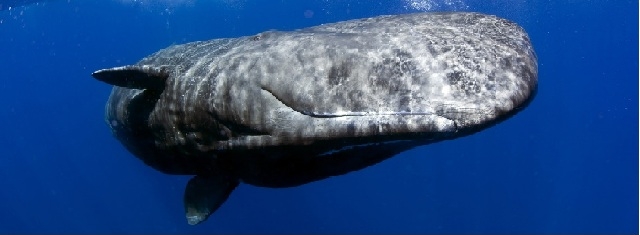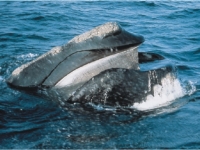Health
COMMERCIAL WHALING HAS BEEN BANNED FOR MORE THAN TWO DECADES
FOR PRODUCTS THAT NOBODY NEEDS

(Source: IFAW/Scott portelli)
USPA NEWS -
Commercial whaling has been banned for more than two decades - yet Japan, Iceland and Norway continue firing harpoons into these gentle creatures for products that nobody needs. More than 35,000 whales have been killed for commercial purposes since the ban on whaling came into effect in 1986...
It often takes a whale more than two minutes to die and in some cases more than half an hour. It is not possible to fully understand the suffering experienced by these large and intelligent mammals as they slowly drown or bleed to death. Decisions to end Japanese, Icelandic and Norwegian whaling must ultimately be made in the halls of power in Tokyo, Reykjavik and Oslo.
Responsible whale watching is a sustainable, green industry that simultaneously supports local economies and promotes whale education and conservation. According to IFAW´s global economic study released in 2009, 13 million people took whale watching tours in the previous year, in 119 countries worldwide, generating a whopping $2.1 billion in total expenditures.
In Iceland, tourists are often encouraged to sample whale meat and are wrongly told that whaling is a traditional activity and that most Icelanders eat whale meat. In reality, 74.6% of Icelanders polled by Capacent Gallup in 2013 say they have not bought whale meat in the previous 12 months.
Whales use sound for vital activities such as communication, navigation, prey and predator detection, attracting mates and for socialising. For these reasons, they are very sensitive to man-made underwater noises including those made by seismic surveys during oil and gas exploration, military sonar, underwater construction and ship noise.
Whales use sound for vital activities such as communication, navigation, prey and predator detection, attracting mates and for socialising. For these reasons, they are very sensitive to man-made underwater noises including those made by seismic surveys during oil and gas exploration, military sonar, underwater construction and ship noise.
Entanglements are a leading threat to whales globally. Commercial fishermen use nets and ropes to harvest their catch, but in the process, whales, dolphins and porpoises can become tangled in the gear. The problem is accidental, but the consequences can be fatal.
Rescuing Whales from Stranding IFAW´s Marine Mammal Rescue and Research team (MMRR) work primarily on Cape Cod, in the United States, one of the world´s hot spots for frequent mass strandings of whales and dolphins.
Rescuing Whales from Stranding IFAW´s Marine Mammal Rescue and Research team (MMRR) work primarily on Cape Cod, in the United States, one of the world´s hot spots for frequent mass strandings of whales and dolphins.
Ruby Bird Wales Sea Danger Commercial Whaling Products Banned International Community Norway Island Japan Iwc Ifaw Court Whale Watching Green Industry Injuries Ship Traffic
Liability for this article lies with the author, who also holds the copyright. Editorial content from USPA may be quoted on other websites as long as the quote comprises no more than 5% of the entire text, is marked as such and the source is named (via hyperlink).






